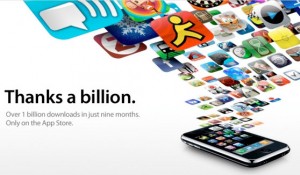Tech business news these days is dominated by headlines about the trial of United States v. Apple, Inc., where the U.S. Department of Justice (DOJ) is charging Cupertino with masterminding a massive conspiracy among publishers to increase prices for e-books. Apple’s defense lawyers and CEO Tim Cook call the allegations “bizarre.” What is really bizarre, though, is the plethora of private treble-damages lawsuits seeking to hold Apple liable under the antitrust laws for its vertical integration strategy with iTunes, iPhone and the App Store.
Just a bit more than a decade ago, Apple Computer (having since changed its corporate name) was decidedly stuck in the backwater of the PC industry. Its introduction of the USB-only iMac in 1998 failed to change the marketplace dynamics, where Apple’s closed Macintosh design and refusal to license its Mac OS to other manufacturers was viewed as the source of diminishing relevance. Apple was such a non-entity that its presence was flatly rejected by the federal courts as part of the relevant market in the Microsoft monopolization cases. Pundits predicted that like the fabled Betamax, Apple’s proprietary strategy would lead to its ultimate competitive demise.
But then along came the “iLife” software suite and the first generation iPod. What differentiated these products was not that Apple invented the technologies — after all, MP3s had been around for years and digital cameras as well — but rather that they all worked well together. Since then, the same business model has been applied to iPads and iPhones: native sync integrated with the Mac OS and Apple’s iCloud service, plus software content, whether media or apps, available easily through Apple’s online stores, with the company taking a 30% cut of retail prices for third-party content.
 When the iPod and iPhone proved to be winners, big ones, Apple’s financial fortunes turned around dramatically. iTunes now is the largest digital music retailer, accounting for some 60% of all downloads, and the various iPhones are the most popular smartphones globally. Apple’s annual revenues soared from $5 billion in 2001 to $108 billion last year. But what short memories we have. The plaintiffs’ antitrust bar accuses Apple of unlawfully monopolizing these markets and has filed a series of sometimes confusing consumer class actions challenging Apple’s vertical integration and closed product systems. (Nine separate lawsuits have been unified into one action in California focusing on the tight grip Apple exerts on the iPhone’s services and applications; other individual and class suits are pending elsewhere.) The EU reportedly has investigated Apple’s App Store restrictions, and more recently its deals with European wireless carriers, to determine whether the company “abused” a “dominant position.”
When the iPod and iPhone proved to be winners, big ones, Apple’s financial fortunes turned around dramatically. iTunes now is the largest digital music retailer, accounting for some 60% of all downloads, and the various iPhones are the most popular smartphones globally. Apple’s annual revenues soared from $5 billion in 2001 to $108 billion last year. But what short memories we have. The plaintiffs’ antitrust bar accuses Apple of unlawfully monopolizing these markets and has filed a series of sometimes confusing consumer class actions challenging Apple’s vertical integration and closed product systems. (Nine separate lawsuits have been unified into one action in California focusing on the tight grip Apple exerts on the iPhone’s services and applications; other individual and class suits are pending elsewhere.) The EU reportedly has investigated Apple’s App Store restrictions, and more recently its deals with European wireless carriers, to determine whether the company “abused” a “dominant position.”
Continue reading Five Reasons Apple’s Private Antitrust Risks Are Minimal
